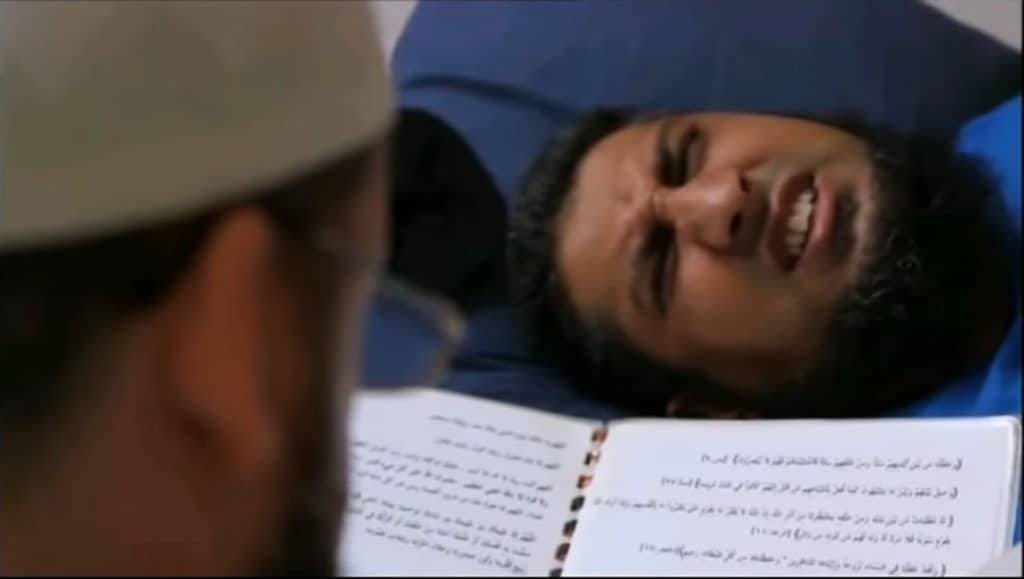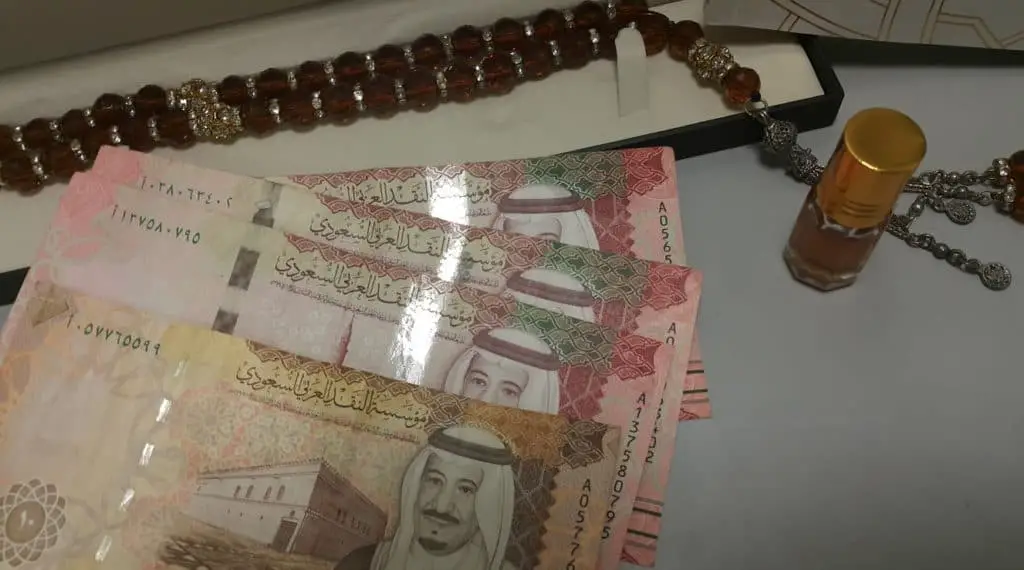Recently, my youngest son, Sohaib, asked me, “Dad, what is a sin?” I replied, “A sin is something you do that goes against the commands of Allah (SWT).”
He thought for a second and responded, “Dad, you always tell me when I do something bad, but if Allah (SWT) does not tell me that I have sinned against him, how can I know that I have?”
My son generally understands what is prohibited (Haram) and permissible (Halal) in Islam. However, he wanted to know how he could spot or identify sinful behavior as he was doing it if no one was telling him.

So, I consulted religious scholars to find out. Here is what I learned:
How Do Muslims Know When They Sin ?
Muslims will be able to recognize their sinful behavior if they are fully aware of the major and minor sins that Allah (SWT) has forbidden. They can also inquire within their hearts. Sins cause trouble and raise doubts. But religious piety brings comfort and peace, even when laws make illicit behavior legal.
So, I further explained to my son that the best way for Muslims to recognize sinful behavior as they are doing it is to learn clearly what Allah (SWT) permits and prohibits from the very start. They should also look into their hearts to check their feelings on such matters. Sins cause bad feelings, whereas righteous behavior makes you feel good.
Table of Contents
(Click to jump to the item and hit arrow to return to the list)
- The (Seven) Major Sins
- The Minor Sins
- Checking The Heart For Sins – Knowing Right From Wrong
What Sins Should Muslims Avoid According to Allah (SWT)?
Major sins are actions for which the Holy Quran or the Sunnah contains a warning of punishment for the sinner. There may also be a clear a legal penalty, or curse.
Major sins, known in Arabic as Dhunoob or Khateya Kabeera, sentence Muslims to hellfire in the afterlife.
On the other hand, Muslims who avoid the major sins or ask for forgiveness from Allah (SWT) will have their minor sins (Dhunoob Sagheer) pardoned .
.
1. The Seven Major Sins
There are nearly 70 major sins, but Hadith Al Mubiqaat reveals that seven of them are the most harmful to believers.
In the Sunnah, there are several references to the 7 major sins and their terrible effects on faith (Iman) and the souls of Muslims.
In Islam traditionally, there are seven major sins. They are:
(Click to jump to the item and hit arrow to return to the list)
- 1. Associating Partners (Al Shirk) With Allah (SWT)
- 2. Practising Sorcery and Black Magic (Sihir)
- 3. Killing or Murder (Qutl)
- 4. Unequal Exchanges Or Interest Payments (Riba)
- 5. Taking The Wealth of Orphans (Alkul Thuraaf AlYataaim)
- 6. Fleeing or Deserting The Battle Field (Al Farar Min Al Maraka)
- 7. Accusing Chaste Women Of Fornication (Al Zina)
In a Hadith, the brothers asked Prophet Mohammed (SAW) about the seven deadly sins. He (SAW) explained them in the order listed above.
(Sunnah-Wills and Testament Wasayaa )
)
1. What Is the Meaning of Associating Partners (Shirk) With Allah (SWT)?

The worst sin in Islam is equating someone or something with or attributing them to Allah (SWT).
It means praying to, invoking, or calling on anyone or anything other than Allah (SWT), the one true God.
The one who calls on others besides Allah (SWT) is a polytheist or a Mushrik.
According to the words of Allah (SWT) in the Holy Quran, if a person dies in a state of associating others with Allah (SWT) or Shirk, he cannot go to paradise. Instead, he will spend an eternity in hellfire.
For example, people in the Hindu religion believe that Brahma is one and many.
Also, 80% of Christians believe in the trinity that God is three equal and eternal persons in the form of God the Father, the Son, and the Holy Spirit.
These false beliefs make them polytheists or Mushrikeen.
Muslims use the following evidence from the Holy Quran to show the truth of this matter.
فَقَدْ حَرَّمَ اللَّهُ عَلَيهِ الْجَنَّةَ وَمَأْوَاهُ النَّارُ
Then, Allah has forbidden paradise for him (the Mushrik), and the Fire will be his abode.
2. What Does Practising Sorcery or Black Magic (Sihr) Mean?

Today, many people deny the reality of sorcery and black magic (Sihr).
However, a lot of Muslims experience the effects of the evil eye (Al-Ayn), spirit possession (Jinn), and magic spells (Sihr).
In desperation, Muslims seek more love, money, power, revenge, or to express anger.
So, they approach Magicians, Sorcerers, and Spell Casters who, for a handsome fee, are more than happy to help them with their problems using black magic services.
The sorcerer employs magic spells to call upon the evil spirits (Jinn) to intervene. Then, these evildoers (Jinn) enter the victim’s body.
They can keep possession and control over minds and hearts.
Along with a monetary reward for his mischief, the magician also receives access to a willing team of evil spirits (Jinn) who will carry out his instructions. (Audhu Bileh).
Verses From The Holy Quran Referencing Magic and Spell Makers
Three Quranic Ayats describe how magicians make black magic using chants, apparel, and blowing on knots.
The magic spells create visions and illusions in the mind of the victim.
1.
قَالَ بَلْ أَلْقُوا ۖ فَإِذَا حِبَالُهُمْ وَعِصِيُّهُمْ يُخَيَّلُ إِلَيْهِ مِنْ سِحْرِهِمْ أَنَّهَا تَسْعَىٰ
He said, “Rather, you throw.” And suddenly their ropes and staffs seemed to him from their magic that they were moving [like snakes].
In the above verse, Moses (AS) performs a miracle by causing his staff to change into a snake. This act dispels the magical optical illusion created by the false magicians.
2.
قَالَ اَلۡقُوۡا ۚ فَلَمَّاۤ اَلۡقَوۡا سَحَرُوۡۤا اَعۡيُنَ النَّاسِ وَاسۡتَرۡهَبُوۡهُمۡ وَجَآءُوۡ بِسِحۡرٍ عَظِيۡمٍ
Moses said: ‘You throw.’ So when they threw [their rods], they enchanted the eyes of the people, struck them with awe, and produced a mighty sorcery.
The above verse ayat in Surat Al Araf references the same story about Moses.
3.
وَمِن شَرِّ ٱلنَّفَّـٰثَٰتِ فِي ٱلۡعُقَدِ
And from the evil of the blowers in knots
3. What Is the Definition of Murder or Killing (Qutl)?


The religion of Islam is not alone in forbidding killing or murder. Killing someone whom Allah has forbidden killing is a heinous crime and a major sin.
However, in the eyes of God, murder is less evil than associating others (Shirk) with Allah (SWT).
Intentionally murdering another Muslim invites Allah’s (SWT) wrath and curse, as well as eternal damnation in the fires of hell.
For this, there is no repentance.
The killers who believe their murderous acts are permissible will spend an eternity in hell.
Those whose acts of killing were unintentional and who do not believe them to be permissible will be judged, but they can repent.
1.
وَمَنۡ يَّقۡتُلۡ مُؤۡمِنًا مُّتَعَمِّدًا فَجَزَآؤُهٗ جَهَـنَّمُ خَالِدًا فِيۡهَا وَغَضِبَ اللّٰهُ عَلَيۡهِ وَلَعَنَهٗ وَاَعَدَّ لَهٗ عَذَابًا عَظِيۡمًا
And he who slays a believer wilfully his reward is Hell, where he will abide. Allah’s wrath is against him and He has cast His curse upon him, and has prepared for him a great chastisement.
4. What Are Unequal Exchanges or Interest Payments (Riba)?

Dealing with or consuming interest (Riba) is not permissible in Islam (Haram).
It is another heinous crime and sin.
It means a deal or transaction in which you charge interest on the exchange of items or commodities that have different qualities or quantities.
Riba Al Fadhl- Interest in Excess
This is selling unequal amounts or qualities of the same item or commodity.
For example, you should sell a kilo of gold for the same (amount and quality) as another kilo of gold, no more or less.
You should sell silver, wheat, dates, etc. in the same way. You cannot ask for more of the same item at a later time, i.e., by adding interest payments.
Riba Al Nasi’ah – Interest of Delay
We are all very familiar with this type of interest (Riba). People routinely get monetary loans from banks and lending institutions.
They agree to repay the principal at a later date, which is the initially agreed-upon sum plus an additional surplus amount, i.e., the interest.
Any kind of transaction that leads to the charging or accepting of interest (Riba Al Nasia’ah) amounts that you add on with a delay in repayment is forbidden and a major sin.
إِنَّمَا ٱلْبَيْعُ مِثْلُ ٱلرِّبَوٰا۟ ۗ وَأَحَلَّ ٱللَّهُ ٱلْبَيْعَ وَحَرَّمَ ٱلرِّبَوٰا۟ ۚ
As for those who devour interest, they behave as the one whom Satan has confounded with his touch. Seized in this state they say: “Buying and selling is but a kind of interest,” even though Allah has made buying and selling lawful, and interest unlawful.
Allah (SWT) advises those who consume or trade with interest (Riba) to do the following:
1.
یَـٰۤأَیُّهَا ٱلَّذِینَ ءَامَنُوا۟ ٱتَّقُوا۟ ٱللَّهَ وَذَرُوا۟ مَا بَقِیَ مِنَ ٱلرِّبَوٰۤا۟ إِن كُنتُم مُّؤۡمِنِینَ
O believers! Fear Allah, and give up outstanding interest if you are ˹true˺ believers.
5. What is Taking The Wealth of Orphans (Alkul Thuraaf Al Yataaim)?

Sometimes, Muslim parents die and leave their children behind. These orphans cannot support themselves and have to rely on others to live.
If they inherit money from departed parents, it is solely for their use. You are not allowed to take the wealth and inheritance of the Muslim orphans for yourself as their guardian.
You can use an orphan’s money or property, but it must directly benefit him or her. You should spend an orphan’s wealth with the best interests of the orphan in mind and should not serve other interests, especially your own.
Doing otherwise is stealing and a major sin in Islam.
1.
وَلَا تَقۡرَبُوا۟ مَالَ ٱلۡیَتِیمِ إِلَّا بِٱلَّتِی هِیَ أَحۡسَنُ حَتَّىٰ یَبۡلُغَ أَشُدَّهُۥۚ وَأَوۡفُوا۟ ٱلۡكَیۡلَ وَٱلۡمِیزَانَ بِٱلۡقِسۡطِۖ لَا نُكَلِّفُ نَفۡسًا إِلَّا وُسۡعَهَاۖ وَإِذَا قُلۡتُمۡ فَٱعۡدِلُوا۟ وَلَوۡ كَانَ بِهِۦ لَعَلَّكُمۡ تَذَكَّرُونَ
And do not come near the wealth of the orphan—unless intending to enhance it—until they attain maturity. Give full measure and weigh with justice.
6. What Is Fleeing or Deserting The Battlefield (Al Farar Min Al Maraka)?

Turning your back on your Muslim brothers in the heat of a battle against non-Muslims is a major sin in Islam.
Allah (SWT) will severely punish those who run away or desert the battlefield.
However, Muslims can leave the field during a battle if it is tactical or if it is to join or bring in other Muslim troops in a rouse or counterattack.
1.
وَمَنۡ يُّوَلِّهِمۡ يَوۡمَـئِذٍ دُبُرَهٗۤ اِلَّا مُتَحَرِّفًا لِّقِتَالٍ اَوۡ مُتَحَيِّزًا اِلٰى فِئَةٍ فَقَدۡ بَآءَ بِغَضَبٍ مِّنَ اللّٰهِ وَمَاۡوٰٮهُ جَهَـنَّمُؕ وَبِئۡسَ الۡمَصِيۡرُ
For he who turns his back on them on such ar occasion – except that it be for tactical reasons, or turning to join another company – he shall incur the wrath of Allah and Hell shall be his abode. It is an evil destination
7. What Is Accusing Chaste Women Of Fornication (Al Zina)?

It is a serious sin in Islam to assert or spread allegations that a Muslim woman has engaged in sexual misconduct (Zina) without proof.
The accuser must receive 80 public lashes, as required by Sharia law, and will then burn in hell after his death.
Making accusations about the sexual misconduct of women must be proven. Accusers should produce four witnesses who all saw the penis entering the vagina.
Only then, could the woman (Al Zineyaa) be found guilty.
In this case, the Sharia Law states that the punishment for both the adulterer and the adulteress is a public whipping of 100 lashes, without pity. (Surat Al-Nur 24:2 )
)
1.
وَٱلَّذِينَ يَرْمُونَ ٱلْمُحْصَنَـٰتِ ثُمَّ لَمْ يَأْتُوا۟ بِأَرْبَعَةِ شُهَدَآءَ فَٱجْلِدُوهُمْ ثَمَـٰنِينَ جَلْدَةًۭ وَلَا تَقْبَلُوا۟ لَهُمْ شَهَـٰدَةً
أَبَدًۭا ۚ وَأُو۟لَـٰٓئِكَ هُمُ ٱلْفَـٰسِقُونَ
And those who accuse chaste women and then do not produce four witnesses – lash them with eighty lashes and do not accept from them testimony ever after. And those are the defiantly disobedient,
2. What Are Minor Sins?
Minor sins in Islam are actions for which neither the Sunnah nor the Holy Qur’an stipulates punishment (Wa’id) for the offender in the hereafter.
They are minor unethical behaviours that are easily eliminated by day-to-day virtuous behavior.
For example, you erase sins when you pray five times a day. You give alms (Zakat). You obey your parents. You make the perfect ablution (Wudhu), behave well, and make an effort to uphold Islam as much as you can.
A Hadith in Saheeh Muslim details how sins fall away as a Muslim performs each step of the ritual ablution (Wudhu) and as he stands for prayer (Salat).
details how sins fall away as a Muslim performs each step of the ritual ablution (Wudhu) and as he stands for prayer (Salat).

3. Checking The Heart For Sins – Knowing Right From Wrong
Good behavior, virtue, and moral uprightness are signs of good character. Conversely, crime, misconduct, and unethical behavior cause doubt and concern in the heart.
This corruption and wrongdoing perturb you, and you hate other people knowing about it. You’d much rather keep it all secret.
One day, Sahaba Wabisah Bin Ma’bad, a companion of the Prophet Mohammed (SAW), went to the messenger to inquire about righteous or virtue-based behavior.
He wanted to know how to discern right from wrong. The Prophet (SAW) told him to check his heart. He (SAW) went on (paraphrased here) :
“The soul is aware of righteous behavior. It puts you at ease and makes your heart peaceful.
However, dishonest behavior and corruption have the opposite impact. It causes disturbance in the soul and trouble and anxiety in the heart.
Even though such behavior has received legal approval, the heart still feels uneasy and troubled.”
Hadith 27, 40 Hadith an-Nawawi
In Conclusion
So, the best way to know if you have sinned and to recognize sinful behavior as you are acting is to learn clearly what the major sins are. They are what Allah (SWT) permits and prohibits from the very start.
Muslims should also look into their hearts to check their feelings on such matters. Sins cause bad feelings, making the heart waver, whereas righteous behavior makes you feel good and is a sign of a righteous character.
Related Questions
What if you feel nothing in your heart about your actions? Have you sinned in this case? If you do not feel anything concerning your actions, it means you are unaware, insensitive, or that your actions have little impact on you or anyone else. In such cases, you may not have sinned at all. Alternatively, you could have a personality disorder.
Can You Confess Your Sins in Islam? No, repentance is between you and Allah (SWT) only. There is no priest, minister, or religious Shaikh to intercede with Allah (SWT) on your behalf as in Catholicism. You repent sincerely or make Tawba in your heart and resolve to change.
Is there Original Sin in Islam, as there is in Christianity? No! Muslims must simply refrain from doing what Allah (SWT) prohibits (Haram) and continue doing what he has commanded them to do (Halal).
References And Useful Links
Islamic Views On Sin – Wikipedia
– Wikipedia
The Holy Quran Surat Al Najm 31 & 32 – Quran.com
– Quran.com
What Are The Seven Major Sins In Islam? – Islam Q&A
– Islam Q&A
Hellfire-Abode Of The Dhalimoon – Quran 5:72
– Quran 5:72
Understanding Killing in Islam Surat Al Nisa 4:92-93 – Islamic Studies
– Islamic Studies
What Types of Riba Are There? – Zakat.org
– Zakat.org
What Are The Seven Deadly Sins? – Sunnah.com
– Sunnah.com
The Difference Between Major And Minor Sins – Islam Q&A
– Islam Q&A
Hadith On Wudhu- Sins Fall Away With Washing And Prayer – Abu Amina Elias
– Abu Amina Elias
Forty Hadith Al Nawawi Knowing Right From Wrong – Sunnah.com
– Sunnah.com


